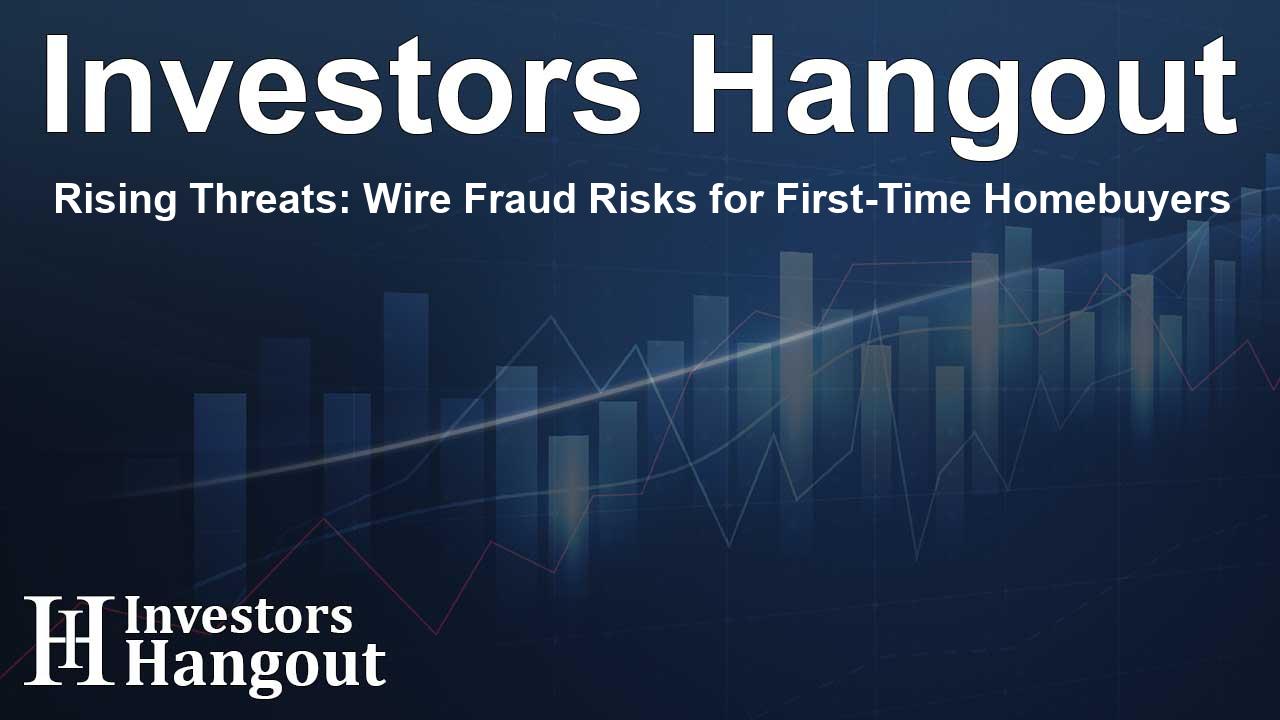Rising Threats: Wire Fraud Risks for First-Time Homebuyers

Growing Concerns Over Wire Fraud in Real Estate
In the world of real estate, wire fraud is becoming a major issue impacting countless individuals, especially first-time homebuyers. Recent findings from a report by CertifID highlight the alarming reality that first-time homeowners are three times more likely to be victims of real estate wire fraud compared to seasoned buyers. This shift emphasizes the urgent need for awareness and education in protecting financial transactions during the home purchasing process.
What the Report Reveals
CertifID's third annual State of Wire Fraud report uncovers a staggering increase in wire fraud incidents, with reported losses skyrocketing from $9 million to a staggering $446 million within a short span. The increase has been attributed to various factors, including the complex nature of real estate closings, widespread accessibility of publicly available property data, and the significant sums of money involved in transactions—exemplified by the median home sale price surpassing $427,000.
Understanding the Risks
The report indicates that an overwhelming 25% of consumers fall prey to wire fraud during real estate transactions. Alarmingly, nearly 5% of those consumers actually become direct victims of such scams. Furthermore, it highlights a significant gap in awareness regarding wire fraud risks among consumers, with a notable 52% reporting they are either unaware or only somewhat aware of potential threats when embarking on a real estate deal.
Age and Experience Play a Role
Another critical finding of the report is that consumers aged 55 and older are twice as likely to be unaware of wire fraud risks compared to those younger than 44. This age-related discrepancy underscores the necessity of tailoring education and awareness programs to target those most vulnerable, particularly first-time homeowners seeking guidance.
Trustworthy Resources Are Essential
First-time homebuyers often lean heavily on their real estate agents for protection against wire fraud, with approximately 35% stating they look solely to their agents for security. In contrast, more experienced consumers tend to trust title companies or attorneys more for safeguarding their transactions. It is essential for real estate professionals to educate their clients adequately about the risks and the protections available.
State-by-State Variations
The report also brings to light the variations in consumer awareness and attitudes toward wire fraud across different states. With 79% of consumers expressing a willingness to pay more for real estate services that prioritize fraud protection, it indicates a market demand for enhanced security measures. This awareness could provide a solid foundation for practices that safeguard consumers' interests.
Expert Insights on Mitigating Risks
The insights from Thomas Cronkright II, the Co-Founder and Executive Chairman of CertifID, stress the gravity of protecting consumers during real estate transactions. He believes delivering safe transactions is not just a business obligation but a crucial duty to buyers and sellers, who are navigating one of the most stressful times in their lives. Cronkright hopes this report catalyzes action within the real estate sector, prompting professionals to prioritize consumer protection.
Tyler Adams, Co-Founder and CEO of CertifID, reiterates this sentiment, emphasizing the organization's commitment to being a reliable resource in the fight against fraud. By adopting robust security practices and raising awareness, he envisions a safer environment for those entering the real estate market.
Conclusion: A Call to Action for Real Estate Professionals
As the threat of wire fraud continues to evolve, it is imperative for all stakeholders in real estate transactions—whether they are agents, title companies, or clients—to work collaboratively toward fostering a more secure environment. This means investing in education, improving communication, and prioritizing the safety and security of financial transactions. Together, we can make a significant impact on reducing wire fraud risks and protecting the financial interests of first-time homeowners.
Frequently Asked Questions
What is wire fraud in real estate?
Wire fraud in real estate involves criminals intercepting communication to redirect funds towards fraudulent accounts during transactions, leading to significant financial losses.
How can first-time homebuyers protect themselves from wire fraud?
First-time homebuyers should ensure they verify all communication, utilize secure channels for transferring funds, and remain informed about potential scams.
What are common signs of a wire fraud scam?
Common signs include frequent urgent requests for money, changes in payment instructions, and communication that seems unprofessional or unexpected.
Why are first-time homebuyers at higher risk for wire fraud?
First-time homebuyers often lack experience and awareness regarding real estate transactions, making them more susceptible to sophisticated fraud schemes.
What steps should real estate professionals take to improve fraud awareness?
Real estate professionals should educate themselves and their clients about the risks of wire fraud, implement security measures, and communicate clearly throughout the buying process.
About The Author
Contact Olivia Taylor privately here. Or send an email with ATTN: Olivia Taylor as the subject to contact@investorshangout.com.
About Investors Hangout
Investors Hangout is a leading online stock forum for financial discussion and learning, offering a wide range of free tools and resources. It draws in traders of all levels, who exchange market knowledge, investigate trading tactics, and keep an eye on industry developments in real time. Featuring financial articles, stock message boards, quotes, charts, company profiles, and live news updates. Through cooperative learning and a wealth of informational resources, it helps users from novices creating their first portfolios to experts honing their techniques. Join Investors Hangout today: https://investorshangout.com/
The content of this article is based on factual, publicly available information and does not represent legal, financial, or investment advice. Investors Hangout does not offer financial advice, and the author is not a licensed financial advisor. Consult a qualified advisor before making any financial or investment decisions based on this article. This article should not be considered advice to purchase, sell, or hold any securities or other investments. If any of the material provided here is inaccurate, please contact us for corrections.
